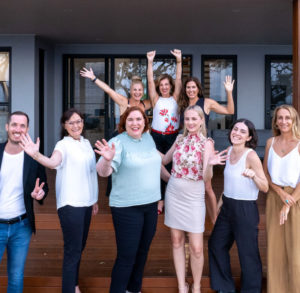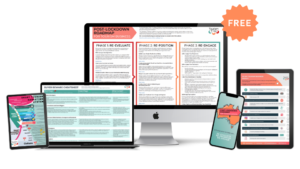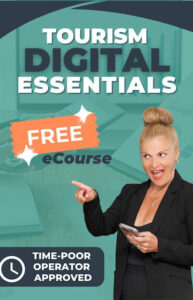Did you know that 2023 is the Year of Accessible Tourism in Queensland? We would like to take this opportunity to recognise the importance of equal rights and how your business can make changes to be more inclusive in just a few simple steps. We’re dedicated to walking this path with you on how you can be a better business, not just for you, but for the world.
Recently we travelled to attend the Northern Territory Towards 2030 Tourism Conference in Alice Springs and Darwin. We were deeply moved by a keynote delivered by Paul Pritchard and his wife Melinda on the topic of Accessible Tourism. It provided valuable insight into how access to information can be so challenging when planning a holiday for a person with a disability.
In this article, we aim to educate you on what exactly is Accessible Tourism, why it’s important, what travellers with disabilities need and finally, where to start in your business to be a part of the change, starting with:
- Accessible Tourism: Understanding the Basics
- Why Accessible Tourism Matters: The Importance of Inclusivity
- What Travellers with Disabilities Really Need: Insights and Considerations
- Keynote Takeaways: Learnings from Accessible Tourism Experts
- Getting Started: Where Tourism Operators Should Focus Their Efforts
- Accessible Tourism Resources: Best Practices and Examples
Accessible Tourism: why should I consider it for my business?

Accessible tourism is about making sure that people that identify as having a disability can travel independently and with dignity. This means providing tourism products, services, and environments that are designed to cater to everyone, including seniors and families with young children.
There are three main identifiers of accessibility: physical, sensory, and communication. Physical access includes things like wheelchair ramps and handrails for people with physical disabilities. Sensory access addresses the needs of people with sight or hearing impairments, and communication access caters to those with speech, vision, or hearing impairments.
As a tourism business, you can play a big part in creating equal opportunities for all travellers. By providing information on how your products may assist people who identify as having a disability, you can help promote sustainable and responsible tourism while also attracting new guests. Accessible tourism is a human right, and we all have a responsibility to make sure that everyone has the chance to explore the world.
In Australia, almost a quarter of the population identifies as having a disability, so it’s really important that we work towards making travel more accessible for everyone. Making travel more accessible is not only the right thing to do, but it’s also good for business. By catering to a wider audience, destinations can attract new visitors and grow their tourism industry.
As an industry, we still have a long way to go to achieve universal accessibility in tourism, but by making active steps, you can help the progress. By working together – including governments, tourism organizations, businesses, and travellers – we can create a more equal and inclusive experience that benefits everyone.
Why Accessible Tourism matters: the importance of inclusivity
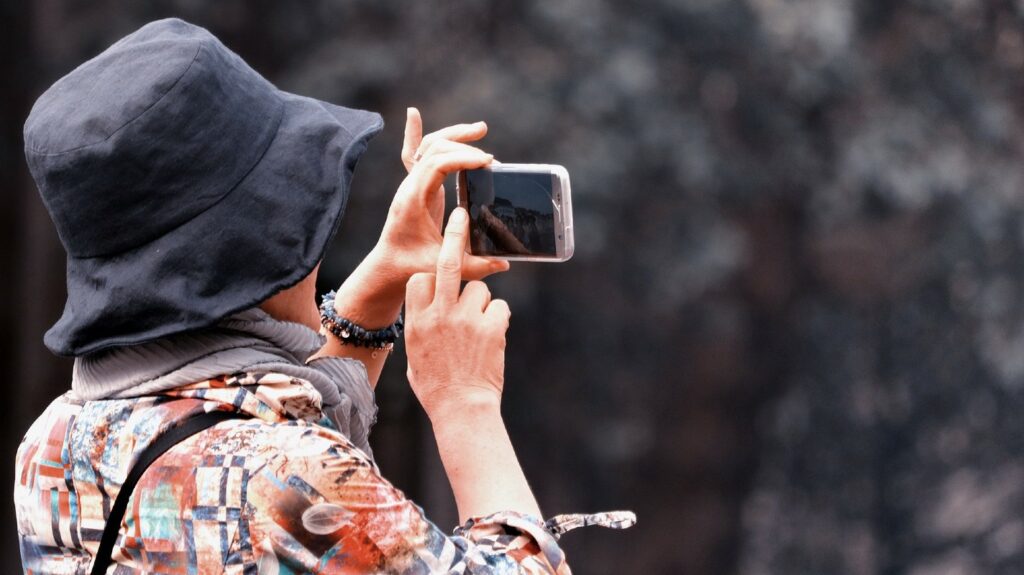
Everyone should have equal access to live a full and rich life, with the freedom to explore and write their own story. Unfortunately, people with disabilities often face barriers that prevent them from enjoying the same opportunities as others. But just because someone has a disability doesn’t mean that they don’t have the same human needs as anyone else. And one of those needs is the opportunity to go on holiday.
A holiday is not just a luxury or indulgence – it’s a chance to re-energise and reset, to take a break from the daily grind and have some downtime. It’s a chance to dream, renew and reinvent yourself. But for many people with disabilities, going on holiday can be challenging or even impossible due to accessibility issues.
Tourism Tribe data from our Digital Engagement Health Check™ shows that only one in five Australian tourism operators have information on their website to adequately cater for people with disabilities. Over 20% of the market now identifies as having a disability, and this represents a significant and valuable market for tourism operators. By making tourism activities and destinations accessible, businesses can tap into this market and meet the needs of a diverse range of customers.
Jester Hill Wines founder, Ann Bourke, provided testimony on the positive economic impact of including basic accessibility information on her website. Since implementing these changes, Ann said there has been a noticeable increase in sales. She also shared that many new customers have visited their winery because they were able to easily access the information on the Jester Hill Wines website, without having to make additional phone calls. Ann further shared how the customers appreciated the convenience of being able to check the accessibility information prior to their visit.
Making tourism activities and destinations accessible doesn’t have to be a huge infrastructure project. Even small adjustments can make a big difference, and planning in consultation with people with disabilities can help ensure that changes are effective and meet their needs.
For tourism operators, promoting accessible tourism isn’t just the right thing to do – it’s also good for business. By tapping into a new market and meeting the needs of a diverse range of customers, operators can increase their social capital and make a difference in their region. And for people with disabilities, accessible tourism means they can enjoy the same opportunities as everyone else and have the chance to relax, recharge and enjoy a well-deserved break.
What travellers with disabilities really need: insights and considerations
Everyone deserves a fun and stress-free holiday, regardless of whether they have a disability or not. To ensure this, it’s important to really listen to people with disabilities and ask them questions like “what do you need?” and “how can I help?” People with disabilities know best what they may need, which gives operators an opportunity to offer assistance.
Being flexible and adaptable is key to providing the best possible experience for people with disabilities. It’s good practice to imagine what it’s like to be in their shoes and provide them with clear and comprehensive information so they can make informed decisions.
Let’s remember that people with disabilities are much more than meets the eye. As an example, Paul, a keynote speaker at the Northern Territory Tourism Towards 2023 Conference, is also a father, an adventurer, a husband and an author. Paul has many roles and identities that define him, not just his disability. Check out Paul Pritchard’s story, it is both heartbreaking and inspiring. We love this video below that shows there is no stopping Paul!
Keynote takeaways: learnings from Accessible Tourism experts
- Individuals with disabilities should have access to holidays without extra expenses.
- Travel and holiday operators can make a difference through accessible and inclusive experiences.
- Listening to people with disabilities is crucial. They know what they need, and operators can provide the best possible assistance by asking questions and taking the time to understand unique requirements.
- It’s important not to be afraid or intimidated when engaging with individuals with disabilities. Remember that they are people first, and their disability is just one aspect of their identity.
- Operators should be flexible and adaptable to meet the needs of people with disabilities. This includes being open to new ideas and approaches and making changes when necessary.
- Providing clear and comprehensive information is essential for people with disabilities to make informed decisions about their holiday experiences. This includes providing information about accessibility, facilities, and any special requirements.
Getting started: where tourism operators should focus their efforts
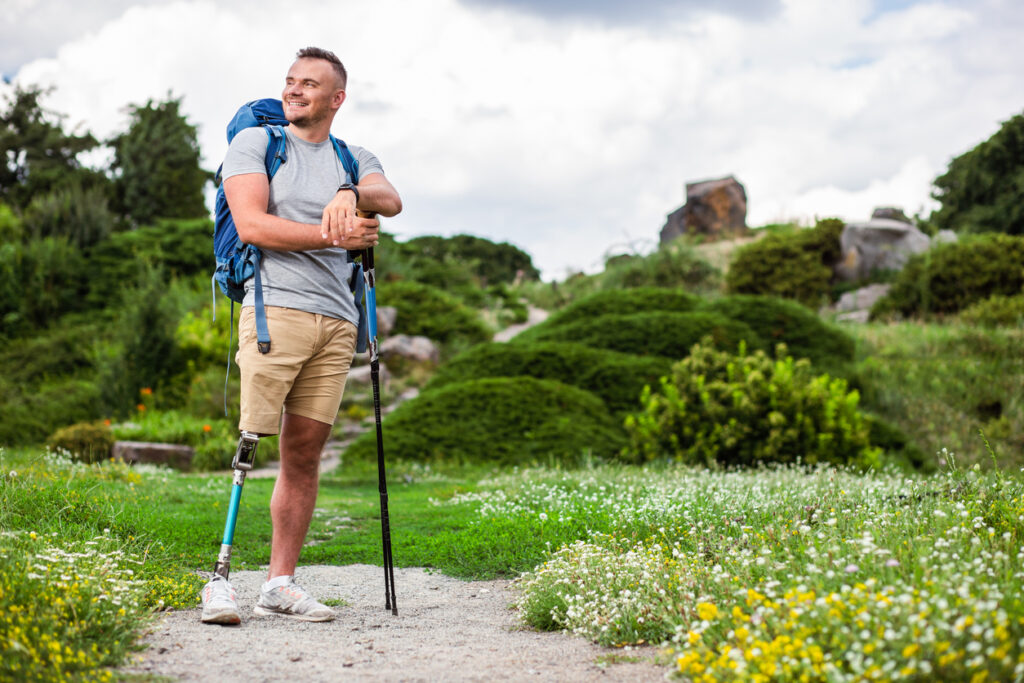
When it comes to tourism, it’s important to ensure that everyone can enjoy the benefits of travel and exploration, regardless of ability. Here are some simple steps you can take to make tourism more accessible and inclusive for people with disabilities:
- Educate yourself and decide if you want to be part of the change. Your business does not have to be perfect – all you have to do is decide if you are willing to be flexible and accommodating.
- Jot down ideas of how you can assist the following breakdown of people who identify as having a disability: cognitive understanding learning or speech, mobility restrictions, punctuation, reading difficulties, blindness/low vision, wheelchair usage, hearing impairment/deafness.
- Look at the simple changes/implementations you can make on the ground in your business to accommodate people with disabilities.
- Take a look at your website and decide how you can communicate that you are welcoming to people with disabilities and will make every effort possible to accommodate diverse needs.
- Create a standalone page on your website titled ‘Accessibility’. Provide as much information as possible with photos, measurements and details on your business so a person with a disability can make their own decision. Include call-to-action buttons on your page that provides the opportunity for the user to get in touch with any questions.
- List the things you have that can help assist with travel needs – but don’t be afraid to list the things you don’t have. Having access to information is key when planning a holiday.
- Consider making your ‘Things to do’ page on your website also caters for activities for people with a disability. This is further to assist with your conversions. You may even include a link to your regional tourism organisation if they have a dedicated page.
- Consider conducting an Access Audit to identify any barriers and come up with solutions to remove them.
- Consider ways to make your business more welcoming and accessible. This could mean providing wheelchair-friendly rooms, and accessible swimming pools, and training your staff to understand the needs of guests with disabilities.
- Finally, take some time to learn about disability and unconscious bias. This means challenging any assumptions or stereotypes you may have about people with disabilities and actively seeking out resources and education to better understand their experiences and perspectives.
In our ‘Make your website the best it can be’ course, we have a section dedicated to Website accessibility giving further tips on how to optimise your website for accessibility, links to a free course on website accessibility, and more.
In addition, enquire with your local tourism organisation on how they promote accessibility and inclusion in their marketing and outreach efforts. Let them know your efforts in being more inclusive to people with disabilities.
By taking these simple steps, you can help create a more welcoming and inclusive business for everyone to enjoy the benefits that travel brings.
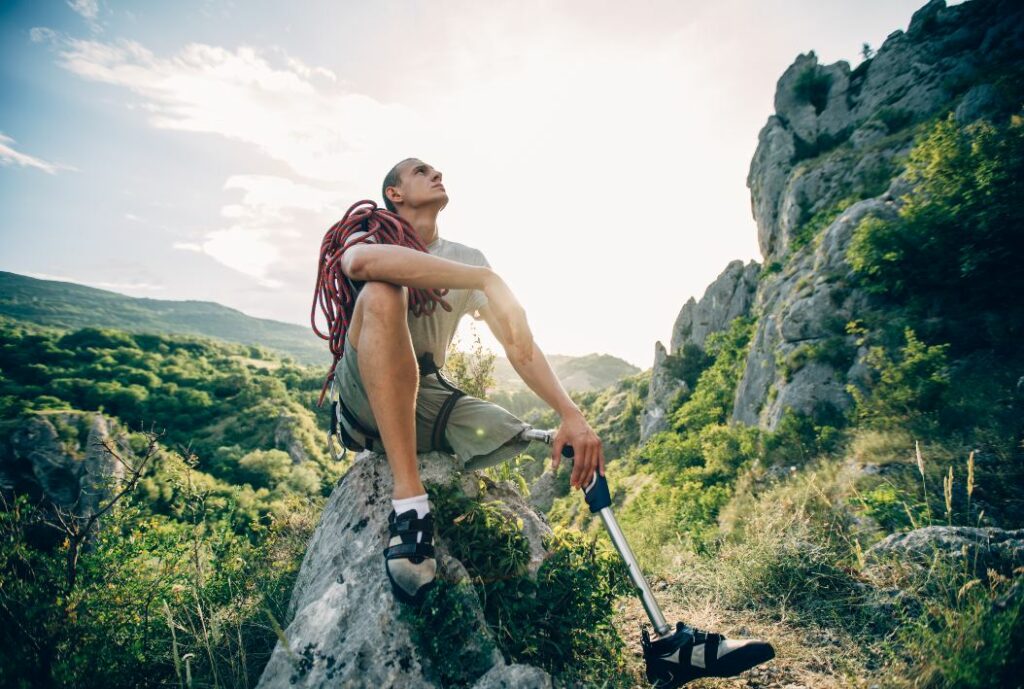
Further reading/resources/inspiration:
Training and accessibility consultation services:
Examples of websites that have information regarding accessibility:
Industry resources:
Accessible Tourism toolkit: QLD Department of Tourism Innovation and Sport
Insights: Austrade Accessible Tourism Insights
Accreditation: Queensland Tourism Industry Council Accessibility module
Research reports: Australian Government Austrade Accessibility in Victoria and Queensland Research Reports
Inspiration:
Acknowledgments:
Special thanks to Paul Prichard and his wife Melinda who helped immensely with the content of this article and articulating what a traveller who identifies as having a disability needs.

